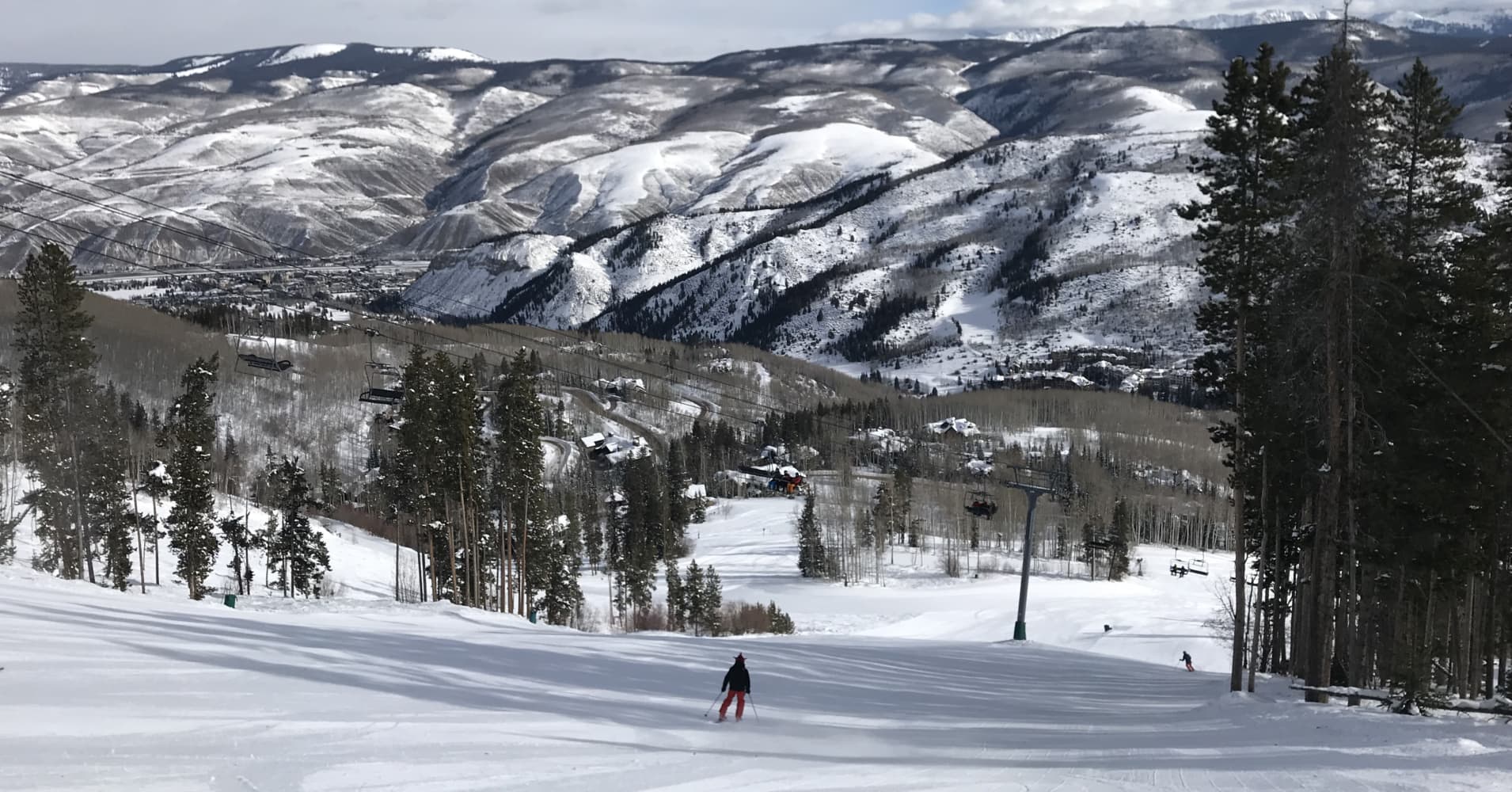
Skiers in the western U.S. are enjoying one of the best seasons in years. But experts warn that years like this are quickly becoming the exception, not the rule.
Snow sport seasons are getting shorter, due to warmer temperatures. That is already having a distinguishable financial impact on residential and resort properties that profit from snow.
Vail Resorts, the largest player in the U.S. ski field, reported better-than-expected quarterly earnings in its latest report but had to lower its full-year guidance because of a weak start to the season. The company's CEO, Robert Katz, attributed that "to guest concerns after two prior years of poor pre-holiday conditions."
The amount of snow in the west has seen an average drop of 41 percent since the early 1980s, according to research just published in the journal Geophysical Research Letters. As a result, the snow season shrunk by 34 days.
Snow sports tourism contributes about $20 billion to the U.S. economy each year, according to researchers at the University of New Hampshire and Colorado State University. The bulk of that spending is at ski resorts, like Colorado-based Vail Resorts.
"We do hear from shareholders quite a bit about this weather variability," said Katz. "If I'm going to invest in Vail Resorts, how do I know that you can consistently drive results, even though you are subject to the weather, the snowfall, the temperatures? And we have, over the last 10 years, really made a point of showcasing to our investors that we are not only doing the right thing for the environment, but we are also changing our business model."
Vail resorts operates 15 mountain resorts across the U.S. Canada and Australia. It also owns luxury hotels and a real estate development company. Katz's answer to the climate threat against his company is to fight it from the ground up. Lead by example and at the same time protect the business.
"Our sustainability practices are critical to our long-term sustainability as a company, and the financial performance that we can deliver," he said.
In 2017, Katz announced a commitment to using 100 percent renewable energy. That means solar panels and transitioning to more energy efficient snow making. Yes, snow guns in Colorado.
The company is also buying more properties, recently in Vermont and Australia, a geographical weather hedge. By diversifying the properties, Katz aims to protect against weather variability place to place.
Vail Resorts also introduced a season lift pass that works at all of the company's properties but must be purchased before the season starts. The "Epic Pass" is yet another weather hedge for both skiers and the company, protecting both against warmer winters with less snowfall in certain places.
"Anything that's out there that could be a risk to our business, we have to factor in. And it's one of the reasons why we did launch this season pass. And it's one of the reasons why we built geographic diversity," Katz said. "It's one of the reasons why we have invested in lots of other activities that people can do at our resorts, so when they come to our resorts there's lots of different choices for people. All of those things are critical for us."
That also means investing in new options that turn the winter wonderland into a summer playground — like zip lines and mountain coasters for summer tourists. It appears to be working. Summer tax revenue for 2016 was 34 percent higher in Vail than four years before, according to the town of Vail.
These strategies may add to the resort's bottom line, but residential real estate in mountain villages is far more dependent on snow.
Home values in mountain towns like Vail and Aspen are some of the highest in the nation, and those values are at risk. By 2050, home values near ski resorts could drop by at least 15 percent due to warmer winters, according to a study by researchers at the University of Wisconsin. At lower elevation ski areas, such as in Utah, Idaho, Nevada and parts of California, they could fall as much as 55 percent.
Josh Lautenberg sells multimillion dollar homes in the Vail area, some of which are used for just a few winter months each year. He was stunned by the poor conditions to start last year's ski season.
"That was the first delayed opening that I've seen since I've moved here in 1991," he said, noting the slow start to business this year. "I think a lot of people were a little bit gun shy from last year. Deposits on hotels, and rental properties, and everything else."
Snow doesn't just support luxury home values – it is the lifeblood of the local economy. Most of the jobs in Vail, whether in hospitality, retail, restaurant or real estate are supported by tourism dollars.
"So we do certainly worry that we wouldn't be able to sustain one or two or three consecutive years low snow volume due to climate change," said Lautenberg. "And as far as the real estate business that I own and that I also am a broker within, what will happen? You know, where is my livelihood in the future, in three to four, five years?"
via IFTTT
No comments:
Post a Comment